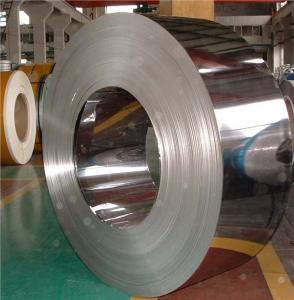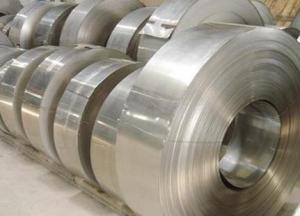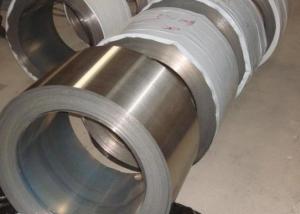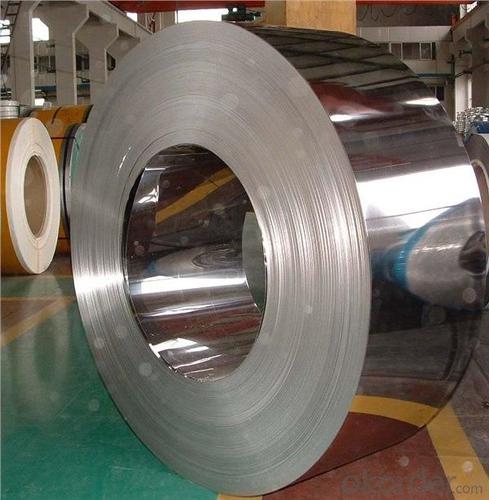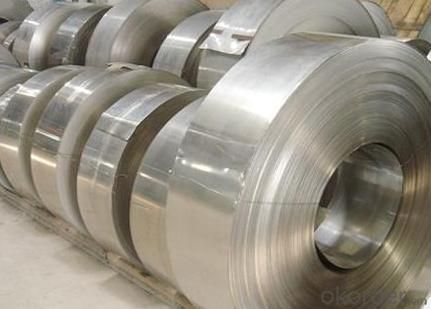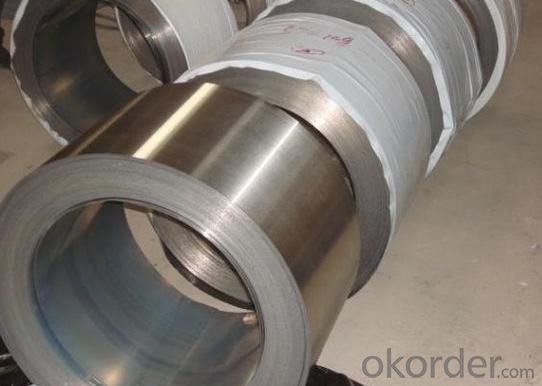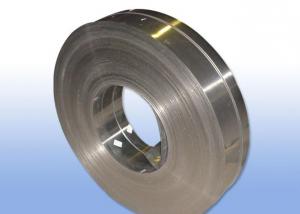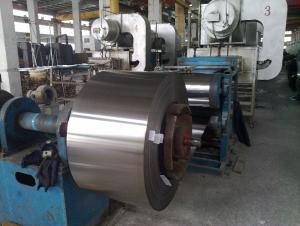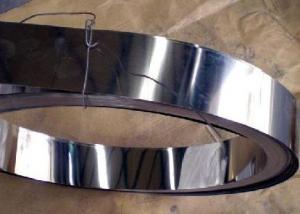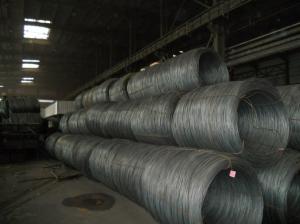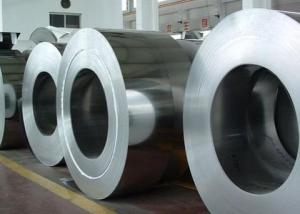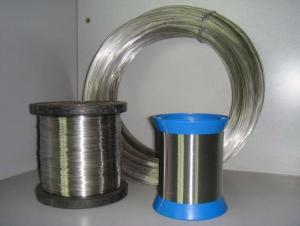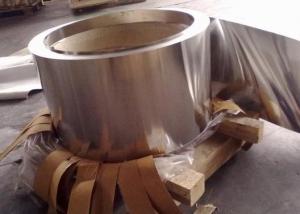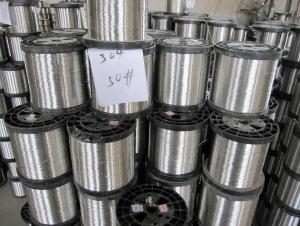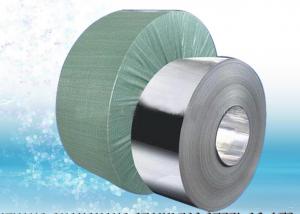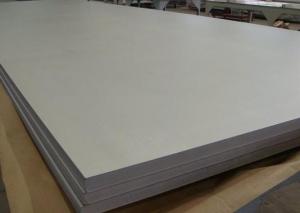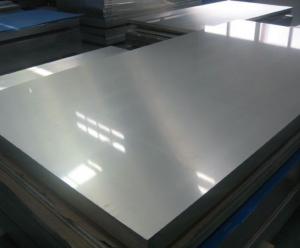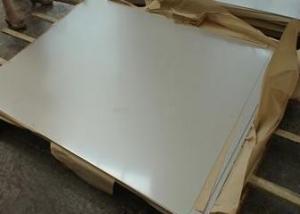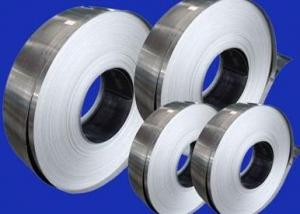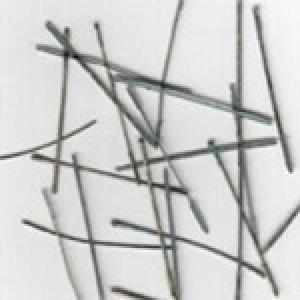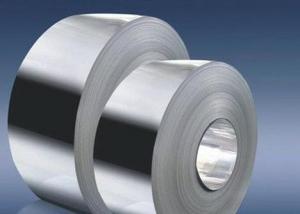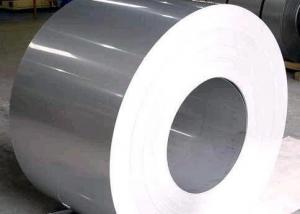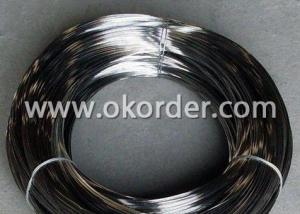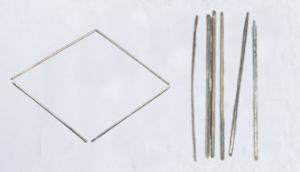AISI 201 Stainless Steel Strips
- Loading Port:
- China Main Port
- Payment Terms:
- TT or LC
- Min Order Qty:
- 1 Ton m.t.
- Supply Capability:
- 2000 Tons Per Month m.t./month
OKorder Service Pledge
OKorder Financial Service
You Might Also Like
AISI 201 Stainless Steel Strips
1. Chemical composition of AISI 201 Stainless Steel Strips
C | Si | Mn | P | S | Ni | Cr |
max0.15 | max1.00 | 5.50-7.50 | max0.06 | max0.03 | max1.00 | 16.00-18.00 |
2. Mechanical properties of AISI 201 Stainless Steel Strips
Yield Strength | Tensile | Elongation | Hardness (HV) | Hardness (HRB) |
245 | 640 | 40 | 253 | 100 |
3. Standard:
AISI, ASTM, GB, EN, DIN, JIS
4. Surface:
2B, NO.1, BA, NO.4, Hairline, SB, Mirror finish, Anti-skid, Cherkered etc.
5. Size:
Thickness: 0.3-3mm (cold rolled), 3-40mm (hot rolled)
Width: 18-600mm
Length: As customers' request.
6. MOQ: 1 Ton
7. Payment terms:T/T or L/C
8. Packing:
Seaworthy package with wooden or Iron pallets with the paper and the steel strip, or as customers' request.
9. Delivery time:
Usually about 7 days after we confirming the order, or according to your quantity.
If you have any question or demand, pls feel free to contact me.
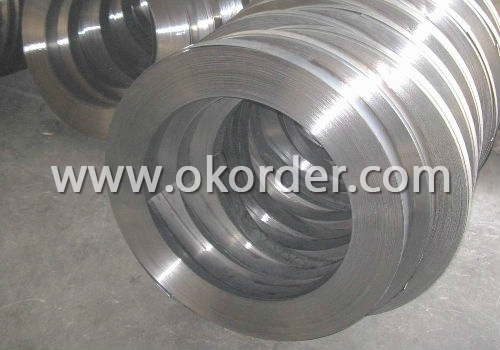
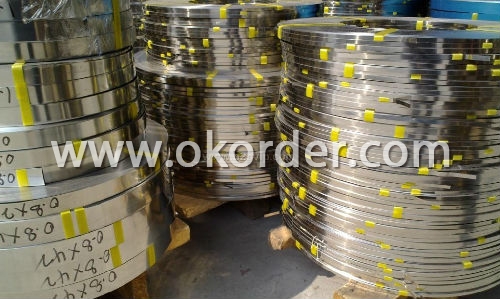
- Q: Can stainless steel wire be used for springs in the medical industry?
- Yes, stainless steel wire can be used for springs in the medical industry. Stainless steel is a highly durable and corrosion-resistant material, making it suitable for use in medical devices and equipment. Springs made from stainless steel wire can provide the necessary flexibility, strength, and reliability required in various medical applications such as surgical instruments, orthopedic implants, and medical devices. Moreover, stainless steel is also biocompatible, meaning it does not cause any adverse reactions when in contact with the human body. This makes it an ideal choice for springs used in the medical industry, where patient safety and well-being are of utmost importance.
- Q: Can stainless steel wire be used for wire rope grips?
- Wire rope grips can indeed utilize stainless steel wire. Stainless steel possesses exceptional strength and corrosion resistance, rendering it a fitting choice for wire rope grips. Industries like marine, construction, and rigging often rely on stainless steel wire rope grips due to their indispensable durability and reliability. With their stainless steel composition, these wire rope grips effectively endure harsh environmental conditions and fend off rust and corrosion, thus guaranteeing a secure and enduring grasp on the wire rope.
- Q: What are the different types of stainless steel wire electrodes?
- There are several different types of stainless steel wire electrodes that are commonly used in various welding applications. The specific type of stainless steel wire electrode to be used depends on the desired welding characteristics and the intended application. One of the most commonly used types is the ER308L stainless steel wire electrode. This electrode is designed for welding 18% chromium - 8% nickel stainless steels, such as types 301, 302, 304, and 305. It provides excellent resistance to corrosion and is suitable for welding similar or dissimilar stainless steels. Another popular type is the ER309L stainless steel wire electrode. This electrode is specifically designed for welding 300 series stainless steels to carbon or low alloy steels. It provides high strength and good resistance to cracking, making it suitable for applications where joining dissimilar metals is required. For applications involving high-temperature environments, the ER310 stainless steel wire electrode is commonly used. This electrode is designed for welding heat-resistant stainless steels such as types 310, 314, and 446. It offers excellent resistance to scaling and oxidation at elevated temperatures. In addition to the above, there are also stainless steel wire electrodes available for specialized applications. For example, the ER316L stainless steel wire electrode is specifically designed for welding molybdenum-bearing austenitic stainless steels, such as type 316. It provides superior corrosion resistance and is often used in the chemical and petrochemical industries. Overall, the different types of stainless steel wire electrodes offer a range of characteristics and properties that make them suitable for various welding applications. It is important to select the appropriate electrode based on the specific requirements of the project to ensure optimal results.
- Q: Does a product made of some stainless steel have the same tensile strength due to its different shapes?
- Stainless steel wire features: corrosion resistance, acid and alkali resistance, high temperature resistance, not easy to wear, aging, toughness, high strength and so on. Widely used in cotton net, six angle net, conveyer belt mesh, stainless steel wire rope, crafts, cutlery and other manufacturing.
- Q: Can stainless steel wire fences be used for security?
- Certainly, stainless steel wire fences are ideal for ensuring security. Stainless steel, known for its durability and resistance to corrosion and weather damage, is a material that can be relied upon for fences used in security applications. It can withstand harsh environmental conditions and maintain its structural integrity over time. Stainless steel wire fences are recognized for their impressive strength-to-weight ratio, making them extremely difficult to breach or cut through. Consequently, they serve as an effective deterrent against unauthorized access and potential intruders. Additionally, the tightly woven mesh pattern of these fences makes it challenging for individuals to climb over or squeeze through, further enhancing their security capabilities. Furthermore, stainless steel wire fences can be customized in terms of height and configuration to meet specific security requirements. They are suitable for installation as perimeter fences around residential properties, commercial buildings, industrial sites, or even high-security facilities such as prisons or military installations. The versatility of stainless steel wire fences enables tailoring to specific security needs. Moreover, stainless steel wire fences can be equipped with additional security features like barbed wire, electric fencing, or CCTV systems to further enhance their effectiveness. These supplementary security measures make it even more difficult for potential intruders to breach the fence and provide an extra level of protection. In conclusion, stainless steel wire fences are a dependable and strong choice for security purposes. Their durability, strength, and resistance to corrosion make them an excellent long-term solution for security needs. Whether it be for residential, commercial, or high-security applications, stainless steel wire fences serve as a robust physical barrier that can deter and prevent unauthorized access.
- Q: Can stainless steel wire be used for hanging plants or vines?
- Yes, stainless steel wire can be used for hanging plants or vines. Stainless steel is a durable and strong material that can support the weight of plants and vines without corroding or breaking. It also has a modern and sleek appearance that can enhance the overall aesthetic of the hanging display. Additionally, stainless steel wire is resistant to rust and weathering, making it suitable for outdoor use. Overall, stainless steel wire is a reliable and long-lasting option for hanging plants or vines.
- Q: How does stainless steel wire perform in cryogenic environments?
- Stainless steel wire excels in cryogenic environments, displaying remarkable performance. Its unique properties grant stainless steel outstanding resistance to low temperatures, establishing it as an ideal material for cryogenic applications. To begin with, stainless steel wire remains robust and maintains its mechanical properties even in the most extreme cold. Unlike other materials that may become brittle or lose their structural integrity in cryogenic conditions, stainless steel wire retains its toughness and ductility. This quality is crucial in applications where the wire must endure high stresses and heavy loads. Furthermore, stainless steel wire possesses exceptional resistance to corrosion, a paramount characteristic in cryogenic environments. Low temperatures can worsen corrosion issues, as moisture and other contaminants freeze, potentially damaging the wire. Nevertheless, stainless steel's innate ability to resist corrosion ensures its durability and reliability even in these challenging conditions. Moreover, stainless steel wire offers excellent thermal conductivity, facilitating efficient heat transfer in cryogenic applications. This feature proves particularly advantageous in systems that require precise temperature control, as stainless steel wire aids in maintaining the desired temperature through effective heat exchange. Additionally, stainless steel wire is highly versatile and can be customized to suit specific cryogenic applications. It can be manufactured in various grades and with different surface finishes, accommodating the specific requirements of diverse environments. This adaptability allows stainless steel wire to be used in a broad range of cryogenic applications, including aerospace, medical, and scientific research. In conclusion, stainless steel wire performs exceptionally well in cryogenic environments. It upholds its strength, toughness, and resistance to corrosion even at extremely low temperatures. Its thermal conductivity and versatility make it an ideal choice for various cryogenic applications, ensuring reliability and durability in these demanding conditions.
- Q: Is stainless steel wire suitable for medical applications?
- Yes, stainless steel wire is suitable for medical applications. It has many desirable properties that make it an excellent choice for use in the medical field. Stainless steel is highly resistant to corrosion, which is crucial in medical environments where the wire may come in contact with bodily fluids or sterilization processes. Additionally, stainless steel wire is known for its high strength and durability, making it ideal for medical applications that require a strong and reliable material. It can withstand the rigors of medical procedures and equipment, ensuring long-lasting performance. Furthermore, stainless steel wire is biocompatible, meaning it is not harmful to living tissues and can be safely used within the human body. This makes it suitable for various medical devices such as surgical instruments, orthopedic implants, and cardiovascular stents. Overall, stainless steel wire is a versatile and reliable material that meets the stringent requirements of medical applications. Its corrosion resistance, strength, durability, and biocompatibility make it an excellent choice for use in the medical field.
- Q: What are the different types of stainless steel wire springs used in the furniture industry?
- In the furniture industry, various types of stainless steel wire springs are commonly used to provide support and functionality to different furniture pieces. Some of the different types of stainless steel wire springs used in the furniture industry include: 1. Coil Springs: These are the most common type of springs used in furniture manufacturing. Coil springs are made by coiling stainless steel wire into a helical shape. They provide excellent support and durability, making them suitable for a wide range of furniture applications. 2. Sinuous Springs: Also known as zigzag or serpentine springs, sinuous springs consist of a series of S-shaped wires that are fastened to the frame of the furniture. They are often used in seating furniture like sofas and chairs to provide a comfortable and supportive foundation. 3. Tension Springs: Tension springs, also called extension springs, are typically used in recliners or furniture with adjustable features. These springs work by stretching or extending when force is applied and then returning to their original position when the force is released. 4. Pocket Springs: Pocket springs, also known as encased or wrapped springs, are individually wrapped coil springs that are placed in fabric pockets. These springs are often used in high-end furniture pieces like mattresses and upholstered chairs to provide excellent comfort and support. 5. Bonnell Springs: Bonnell springs, also referred to as hourglass springs, are large, hourglass-shaped coil springs that are interconnected. They are commonly used in upholstered furniture like sofas and mattresses to provide consistent support and durability. 6. Torsion Springs: Torsion springs are typically used in furniture mechanisms that require rotational force or tension. They work by exerting torque when twisted or rotated, making them suitable for applications like reclining chairs or adjustable headrests. Each type of stainless steel wire spring has its unique characteristics and benefits, and the choice of the spring type depends on the specific requirements of the furniture piece and the desired level of comfort and support.
- Q: Can stainless steel wire be used for wire mesh screens?
- Indeed, wire mesh screens can readily utilize stainless steel wire. Renowned for its resistance to corrosion, durability, and strength, stainless steel wire emerges as the optimal material for wire mesh screens. These screens find widespread employment in diverse fields like filtration, separation, protection, and reinforcement. With the capacity to endure severe environmental conditions, such as high temperatures and chemical exposure, stainless steel wire mesh screens remain immune to rusting or degradation. Furthermore, these screens offer exceptional visibility, airflow, and light transmission, rendering them suitable for implementation across industries ranging from aerospace and automotive to construction, food processing, and mining.
1. Manufacturer Overview
| Location | Shandong,China |
| Year Established | 2005 |
| Annual Output Value | Above US$5.3 Million |
| Main Markets | Europe, China |
| Company Certifications | ISO9001:2000 |
2. Manufacturer Certificates
| a) Certification Name | |
| Range | |
| Reference | |
| Validity Period |
3. Manufacturer Capability
| a) Trade Capacity | |
| Nearest Port | Tian Jin |
| Export Percentage | 30% |
| No.of Employees in Trade Department | 40 People |
| Language Spoken: | English;Chinese |
| b) Factory Information | |
| Factory Size: | Above 50,000 square meters |
| No. of Production Lines | Above 8 |
| Contract Manufacturing | OEM Service Offered;Design Service Offered |
| Product Price Range | Average |
Send your message to us
AISI 201 Stainless Steel Strips
- Loading Port:
- China Main Port
- Payment Terms:
- TT or LC
- Min Order Qty:
- 1 Ton m.t.
- Supply Capability:
- 2000 Tons Per Month m.t./month
OKorder Service Pledge
OKorder Financial Service
Similar products
Hot products
Hot Searches
Related keywords
